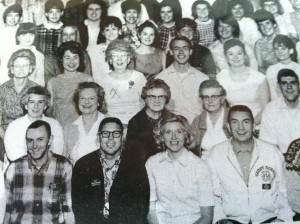“Do you see this woman?” – Jesus the Christ, Luke 7:44
Camp is marvelous. This is my second week speaking at camp this summer, having just completed a week at Sandy Cove on the east coast. I love that there are families who invest their precious vacation weeks in gathering at a place where, as a family, they gain revelation from the scriptures, enjoy recreation, have all the meals provided, and sit amidst creation for a little time of breathing – all for far less than the cost of any other resort vacation.
I am energized by teaching at these places, but the conversations that occur in the leisure of the week are what make these times most life giving and special to me. Over the course of the summer I’ve met a helicopter pilot about to be deployed to Afghanistan again, leaving his wife and children at home in the states. He reads Wendell Berry and GK Chesterton as a means of keeping from drowning in the sea of insanity that he encounters over there. I’ve met a young man who is a piano performance major who can’t afford to own a car for college or a piano with more than 60 of the 88 keys functional. I just finished a long conversation with a couple defending Biblical equality, which means they believe women can lead in the church, and that the home should also be egalitarian. I could go on for paragraphs, but perhaps you get the point.
No? The point, for me at least, is the revelation of the gap still in my being when it comes to putting people in categories and giving people labels. I preach against it. I write against it. It’s objectification, which is dehumanizing, and contributes to the immense pain and walls in our world. “People” I say, “are image bearers of God – each one uniquely capable of displaying God’s glory and, if we’ll take the time, already doing so. We need to take the time to look, and have the eyes to see.” But therein lie the problems. Seeing one another for glorious yet broken people that we are requires at least those two things:
1. We must take the time to look. Taking the time has meant, at camp, being able to sit at meals with people and proactively ask questions. That’s where I learn that there is a retired prison guard in this world who still has nightmares about his job, but who sought, everyday, to faithfully bless and serve because it was the only job he could find, being a theater major in college and graduating in the time and place he did. Now he writes books, and drives his son the music major to college everyday, as they hope and save for a 2nd car – and a piano – listening to Chopin and Beethoven in a neighborhood more familiar other genres.
Hearing stories like this destroys the walls and presuppositions and paradigms that are so easily entrenched in my world, but hearing takes time. It takes a meal, and the knowledge that when this meal is over I’ll still have time for Colossians study, and e-mails, and skype conversations with staff because there’s no shopping, or dishes, or living to do, other than the living of sharing our stories with each other.
I need to find ways of making this happen more in the real world. There’s a group of people in my church who meet on Friday morning for coffee before work, and it provides a good approximation, though even there, the time is terribly limited. I’m inviting them to my cabin for a night where we’ll talk ’til the candles burn low, so that we can hear more, and deeper stories. When we make time to hear stories, we discover that the world is far more nuanced than our stereotypes, which are painted with such a broad brush that they cover all the beauty.
2. We need eyes to see. Asking questions is a critical part of this, because the questions are what lift the curtain on stories untold. “Just what is the center for Biblical Equality?” is a simple question, asked late at night of a man wearing that label on his t-shirt. It led to a profound discussion about various theologians and Bible colleges, church pain, gender identity, and so much more that remains unspoken sometimes because we’re afraid to ask questions that might break paradigms. After all, we’re at camp, and campers are generally “complementarians” and so we don’t talk about those things at camp. Yes, and military people don’t read Wendell Berry much, or present arguments for the existence of God drawn from CS Lewis between missions, and people who can’t afford a 2nd car don’t listen to Chopin, let alone play his music note perfect at a talent show for family camp.
God, forgive me for the boxes I create – for the things I think I know about people because of the packaging. In a world where we look at the package for two seconds, judge it, and move on or consume, I fear that people have become just another brand, another commodity. Grant that we’d build space, and grace, and curiosity into our lives, so that we’ll learn stories, pray together, and rejoice in the beauty of Your image that is all around us in our world, our family, our churches. And praying personally, may this happen not just at camp… but in the real world.
Amen….
what can we do to see our daily real world with greater clarity? I welcome your thoughts.














